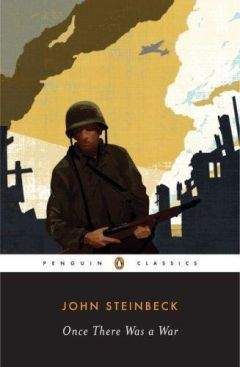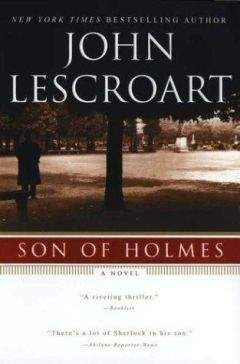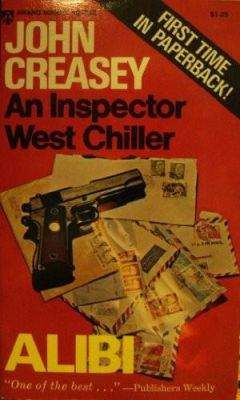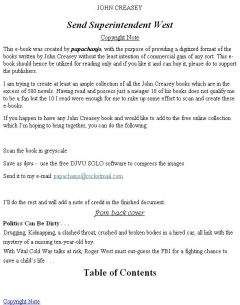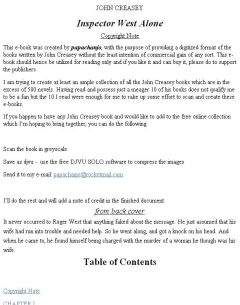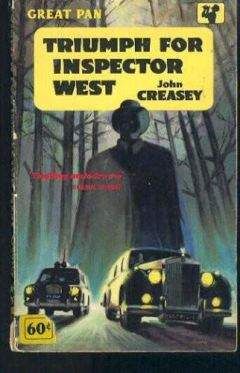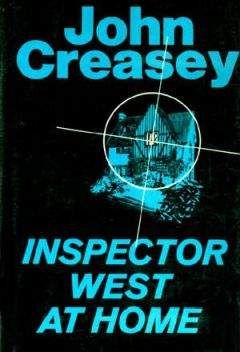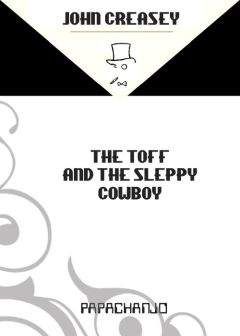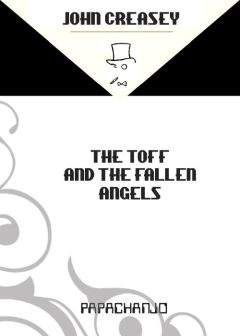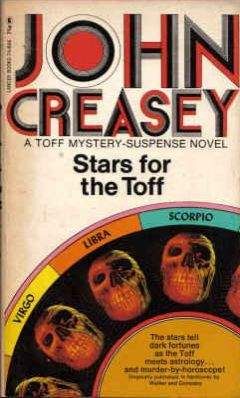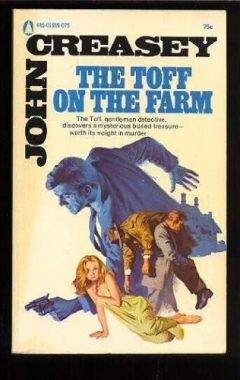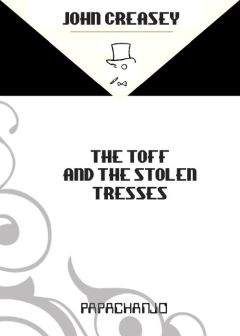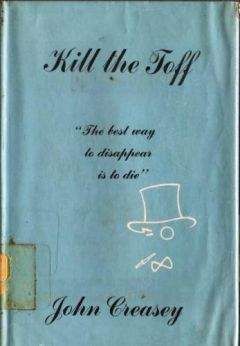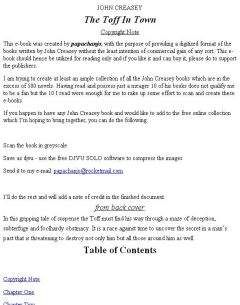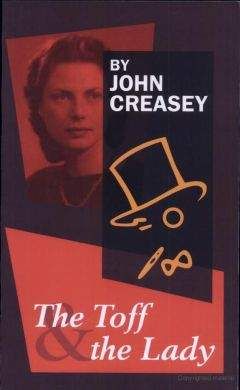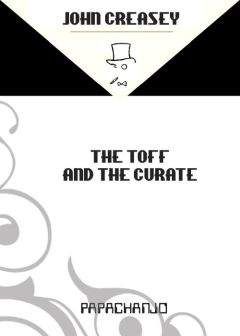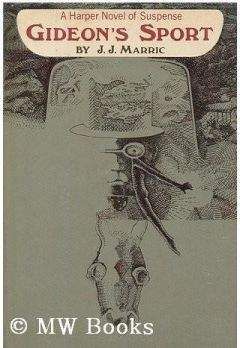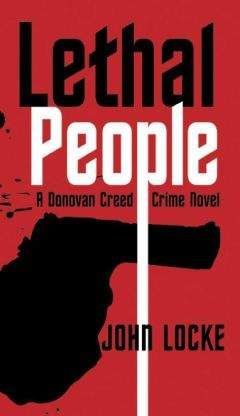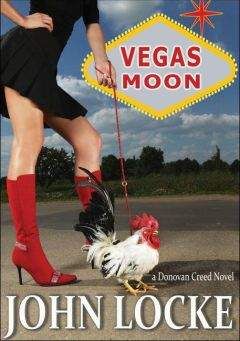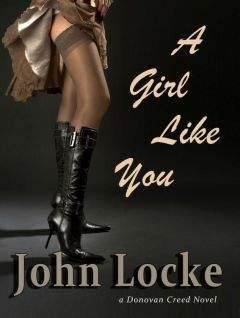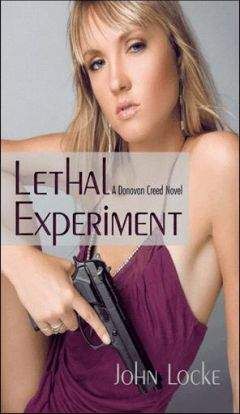John Creasey - Meet The Baron
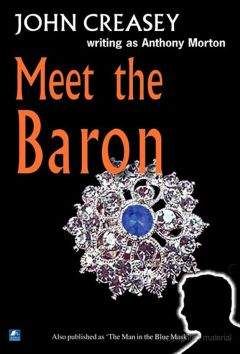
Скачивание начинается... Если скачивание не началось автоматически, пожалуйста нажмите на эту ссылку.
Жалоба
Напишите нам, и мы в срочном порядке примем меры.
Описание книги "Meet The Baron"
Описание и краткое содержание "Meet The Baron" читать бесплатно онлайн.
At that time John Mannering’s assets were one thousand and fifty pounds, an idea that had grown into an obsession now, a belief in his ability to work the idea, and the love of Lorna Fauntley, of which he was unaware.
No one knew, no one dreamed, that they would soon be meeting the Baron. When the gentleman’s exploits grew famous or notorious, according to the point of view, no one dreamed that John Mannering was the Baron.
CHAPTER SIX
RUMOURS AND CRIMES
DETECTIVE-INSPECTOR WILLIAM BRISTOW WAS A LARGE-BONED man of medium height and middle age. He had spent twenty-five years in the Force — excepting, of course, for four years in Flanders — and those years were beginning to show in the grey of his grizzled hair and the lines in the corners of his eyes. Apart from those two signs he might have been twenty-eight, not forty-eight. His back was as straight as a rod, his stomach flat, his biceps passably hard, even when relaxed, and his eyes, flinty grey beneath almost white brows, were as keen and shrewd as ever. His lips smiled less often, perhaps, but his eyes laughed more.
At times he was called the Philosopher, because he appeared to let nothing worry him. At other times he was called the Posh William, because he dressed fastidiously, and wore a button-hole on every possible occasion. At other times still he was called the Mug, because every Commissioner selected him for the most difficult, tiring, intricate, and unlikely problems. The imagination of his fellow-officers — and subordinates — at Scotland Yard was not, then, as fertile nor as subtle as it might have been.
There was one compensation, however. Certain members of the fraternity that takes its pleasures and earns its living at the expense of more orderly members of society revealed greater subtlety by calling him Old Bill.
It might have been possible for them to have selected a man more antithetical of Bairnsfather’s creation, but few people would have believed it. Bristow’s face was square, tight-skinned, and alert, while his moustache was a neat military-cum-Colman attachment. Bristow fingered it a great deal, as though endeavouring to remove the yellow stains of nicotine that soiled the greyness of it. By habit he smoked cigarettes heavily, drank beer a little and spirits usually by invitation, and shaved night and morning when the trials of his job permitted. The thirty-seven housewives who lived in Gretham Street, Chelsea — excluding his own wife — believed that he was a commercial traveller. He had two sons approaching maturity and a daughter of fifteen. Perhaps one of the most significant things about him was that he adored his wile.
One morning in the August of 1936 Old Bill walked rapidly along Mile End Road, acknowledging an occasional friendly grin from the enemy who were at times his friends, frowning, wishing for winter — or at least for a temperature below seventy-five degrees — and confounding the Dowager Countess of Kenton.
The Countess had lost an emerald brooch valued at seven hundred and fifty pounds. That had been on the Monday, three days before this visit of the Inspector’s to Limehouse. At ten o’clock on the night of the loss she had telephoned Scotland Yard to lodge her complaint, and, allowing for the six hours she apparently slept at night, she had telephoned Scotland Yard every other hour afterwards.
The theft had been a neat one, but not exceptionally clever. During a dance — the Dowager had an unattached daughter — the lights had been cut off for thirty seconds, and the brooch had been snatched from the Dowager’s corsage. Before she had stopped screaming the lights had been switched on again, whereat she had fainted, and no one had kept a cool head in the ensuing confusion.
A ladder leading to the windows at the rear of No. 7 Portland Square revealed the means of ingress, an unconscious housekeeper near the electric-main switch — which in turn was near the window — revealed the burglar’s preparedness to use violence, and the fact that no one of the party had switched the light on again proved the raider, who must have done it himself, to have been of unusual daring and nerve.
The detective liked nerve, and, knowing that the house-keeper was not badly hurt, was amused. On the third day he disliked the Dowager so much that he was disappointed when Levy Schmidt, a pawnbroker in the Mile End Road, telephoned him to say that a client had tried to pass the Kenton brooch. That is to say, the human element in the detective was disappointed; the official element was pleased.
Bristow turned into the small, ill-lit shop and stood waiting amidst a row of second-hand dresses, a soiled heap of more intimate garments, a collection of cheap clocks, vases, and ornaments. After a few minutes Levy limped into his cubicle, saw his visitor, and lifted his scraggy old hands in dismay.
“Vy, Misther Bristhow, tho thorry, tho thorry! Vy didn’t you come in the private entranth, Misther Bristhow ? Come thith vay, thith vay, and mind the stheps — vun — two — three . . .”
Bristow followed the Jew into the grimy parlour at the rear of the pawnshop, and marvelled to himself that a man as rich as Levy Schmidt could live in such filth. He shrugged the thought away. Levy had a perfect right to handle his own money and affairs as he liked; and Levy, moreover, was a valuable informant.
The parlour was as gloomy as it was dismal, despite the brilliance of the sun outside. It was heaped with more second-hand clothes, odd articles of furniture, crockery, and cutlery. Nothing that could be pawned was missing. Mile End patronised Levy frequently and exhaustively from sheer necessity.
“Now vot, Misther Bristhow — thit down, pleath — can I do for you ? Can it be . . .”
“What a lot more you’d say if you didn’t talk so much!” said Bristow cheerfully. “The Kenton brooch, Levy. You’ve got it?”
Levy nodded. His dirty, scrawny face was lined with years, and his brown, hooded eyes gleamed as he regarded the detective with satisfaction. He turned away and limped towards a square steel safe in the corner of the parlour.
“Vy, yeth, Misther Bristhow, vould you pelieve it, I forgot? Mind you,” the pawnbroker added hastily, “I voth forthed to pay ten poundth for it, Inthpector; he vould not leave it viddout a pit of money. You come back ven I haff more in the thafe, I thaid, and he promithed he vould,
Inthpector — just vun minute more. Hey! The Kenton brooch, hey!”
Bristow took the bauble in his fingers and peered at it. The lambent green fires in the stones greeted even the dim light of the shop-parlour. Bristow pulled a photograph from his pocket and compared it with the jewel in his hand. It was the genuine Kenton brooch, he was prepared to swear.
He slipped it into his pocket, wrapped in tissue-paper, and nodded at the Jew.
“That’s it,” he said. “Now who was the man ? Know him ?”
“Never thet eyeth on him before in me life, misther!”
“What did he look like?”
“Veil — it’th dark in the thop, Inthpector. Tall and dark and vot you might call viciouth, hey? Not a nithe man to know, hey? And his coat-collar voth turned up — like thith.” Levy put his scrawny hand behind his neck and hunched his shoulders expressively.
“Coat or overcoat ?” asked Bristow.
“Overcoat, and a day like thith!” Levy lifted his hands to the ceiling. “Vy, didn’t it thout thuthpithion?”
“Why didn’t you telephone for a couple of policemen ?” asked the Inspector a little irritably.
“Veil” — Levy shrugged his shoulders until the miscellaneous collection inside the pocket of his once black, now green coat jingled together — “vot could an old man like me do, Inthpector? Get the brooch, I thaid — that wath the firth thing. And then telephone you, hey?”
Not by a word or sign did Levy betray that he knew more than he said. True, he had given the only description of the visitor he possessed; but Levy had no love for the police, and he had a great love for jewels of the quality of the Kenton stone. Between him and the visitor who had brought the jewel there had passed a conversation that Bristow would have given a lot to have heard.
“I’m not grumbling,” the Inspector said, knowing that if he grumbled he would get little or no information. “What was his voice like?”
“Not a nithe voith,” said old Levy. “Hard, misther, vid the corner-mouth talk, hey?”
“H’m,” said Bristow, and his mind worked automatically.
“An old lag, but not a Londoner, or he’d know Levy. The light business shows his nerve, and he’ll probably be known in the Midlands or up north. Broke, or he wouldn’t have taken ten pounds and an excuse for the brooch. He won’t come back, of course.”
“Where’s the ticket he signed?” asked the Inspector.
“Vy, yeth, I forgot, vould you pelieve it? Vun moment, Misther Inthpector, vun . . .”
The old Jew’s voice quavered away as he waddled out of the parlour towards the shop. Bristow could hear him pulling out a drawer beneath the counter, and heard him muttering to himself. Bristow scowled, trying to sort the thing out in his mind. Levy should have held the man somehow, he told himself.
“Here ve are, here ve are,” said Levy, limping down the stairs into the parlour. “Vunny kind of name, Misther Inthpector.”
Bristow took it, and looked casually at the signature, little dreaming how often he was to look on the name and curse it. His attention tightened, however, when he saw that the signature was little more than a series of block letters joined together; it suggested illiteracy or cunning — or both.
“H’m,” he muttered, “T. Baron. What strikes you as funny about that, you old gas-bag?”
“Veil,” muttered Levy, “veil — high and mighty, vot ? Hey! Just a minute, misther, the thop . . .”
Bristow nodded as he heard footsteps in the shop beyond. He waited for two or three minutes, with growing impatience. Levy was muttering, and the other voice, low-pitched and harsh, was travelling into the parlour, the tone, not the words, being distinguishable. Levy was haggling, and the other was losing his temper. Bristow started to frown. His frown deepened as he heard a shuffle of footsteps and a rapped: “No, you don’t. Stay there!”
Bristow stopped scowling. He stood up slowly and fingered the steel of the handcuffs in his pocket. It was absurd, of course, but the probability remained that the would-have-been pawner of the Kenton brooch had returned. Bristow knew that the gods were generous at times, and a fool was bom every minute.
Keeping close to the row of clothes in the passage, and out of sight of the men in the shop, he went up the stairs.
He saw the man suddenly, and grinned. Levy’s description had been brief but good. Tall, dark-skinned, with a tweed cap pulled low over his eyes, reaching almost to the bridge of his nose, and the collar of a dilapidated rainproof coat turned up above his chin, the thief of the Kenton brooch — providing the case was as plain as it appeared to be — was staring at Levy, who was crouching back against the wall behind the desk. Bristow could just see the top of Levy’s nose and a forelock of white, greasy hair.
“I tell you,” Levy was muttering, “that vot I thay ith . . .”
“Can that !” snapped the man in the tweed cap. And then, without the slightest change of expression in his voice, he said, “Bristow, come out of there!”
The silence in the pawnshop could be felt. Bristow himself felt as if he had been punched in the stomach; his wits were wool-gathering, his legs and arms felt weak. He could just hear the soft breathing of the Jew and the ticking of half a dozen clocks.
“Levy,” said the man in the tweed cap, breaking the silence harshly, “you’ve split to the narks enough, I reckon. Are you religious?”
Levy muttered something deep in his throat. The detective felt a peculiar tightening of the muscles at the pit of his stomach, and a coldness seemed to have spread through the shop, despite the heat of the day. He shivered.
“Because,” went on the man in the tweed cap, “unless Bristow decides to come into sight you’re going on a long, long journey. So . . .”
Bristow swallowed a lump in his throat and moved forward. Levy was shivering against the wall, and the man in the tweed cap was holding something in his right hand, holding it loosely and pointing it towards the policeman; he seemed to ignore Levy.
“You’ll get a heavier sentence for this,” said Bristow, keeping his voice steady. “Put that gun away and . . .”
The man lifted the gun. For a moment Bristow’s eyes narrowed, but his coldness increased. It all happened in a fraction of a second. Bristow had just time to think in a queer, hazy way of death. . . .
Then something sweet and sickly came through the shop, something that made Bristow gasp and choke and stagger back. He recognised the fumes of ether gas as he heard the thief laugh, a harsh, unpleasant sound that grated, and saw old Levy drop to the floor, falling as though in slow motion on the screen. The Jew’s hand clawed the air, his mouth was twisted open. A vague shape loomed in front of Bristow’s eyes, and he struggled for a moment in an effort to regain his feet. Then the darkness swallowed him.
The man in the tweed cap ran through the unconscious detective’s pockets quickly, found the Kenton brooch and stuffed it into his own pocket, and then hurried out of the shop, his shoulders hunched and his head buried in the collar of a frayed mackintosh.
And a little later John Mannering chuckled to himself.
As Bristow’s sergeant told him some time later, the detective and the pawnbroker might have been on the floor of the shop for hours but for the arrival of a woman who wanted to pledge a pair of boots. She saw the two bodies, and, not being used to such evidence of violence, even in the East End, screamed and rushed into the street, where she was caught and interrogated by a placid policeman a few minutes later.
The policeman investigated, and then started to get things moving; he recognised the Inspector, and knew the slightest error would earn him a sharp rap over the knuckles. Consequently Bristow was revived without loss of time, and the policeman was relieved to find his superior was not seriously gassed.
“Baron!” muttered a sick and furious Detective-Inspector Bristow some two hours later. “Baron! It’ll be a long time before I forget that name, blast him. Did you find anything. Tanker?”
Sergeant Jacob Tring of the plain-clothes force, known as Tanker because of his slow, ponderous, yet remarkably successful progress in his work, shook his head and regarded the pale face of his chief stolidly.
“Not a thing. Levy was out as much as you, and if it hadn’t been for that old woman who went in to pop a pair of boots you might have been there for hours. I shouldn’t smoke just yet, chief,” Tanker went on. “The innards are made for some things and not for others.”
“You go to hell!” said Bristow snappily. “Well, we know something now. Send a call through for the Baron — T. Baron — to every station; get that pawn-ticket run over for fingerprints . . .”
“There ain’t no pawn-ticket,” said Tanker. He brightened perceptibly as he made the statement, for he was a man cheered by bad news and depressed by good tidings. “He took it.”
Подписывайтесь на наши страницы в социальных сетях.
Будьте в курсе последних книжных новинок, комментируйте, обсуждайте. Мы ждём Вас!
Похожие книги на "Meet The Baron"
Книги похожие на "Meet The Baron" читать онлайн или скачать бесплатно полные версии.
Мы рекомендуем Вам зарегистрироваться либо войти на сайт под своим именем.
Отзывы о "John Creasey - Meet The Baron"
Отзывы читателей о книге "Meet The Baron", комментарии и мнения людей о произведении.





